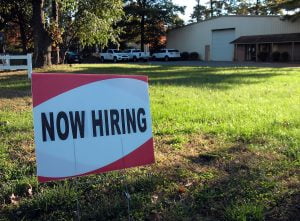Even though the stress job loss can seem overwhelming, there are many things you can do to gain control of the situation, keep your spirits up, and discover a new sense of purpose.
Stress caused by job loss
Losing your job is one of life’s most stressful events, regardless of whether you were laid off, downsized, forced to retire early, or saw contract work dry up. The stress of losing a job can have a negative impact on your mood, relationships, and general mental and emotional health in addition to the obvious financial distress it can cause. At Beverly Hills Christian Counseling, we offer faith-based support to help you navigate this challenging season, regain confidence, and find hope for the future.

Our jobs frequently serve as more than just a means of support. They affect both our own and other people’s perceptions of us. Even if you didn’t enjoy your job, it probably offered you a social outlet and gave structure, direction, and meaning to your life.
Being unexpectedly laid off can leave you feeling hurt, angry, or depressed. You might be struggling with who you are, lamenting all the things you’ve lost, or worrying about what the future holds.
You might feel betrayed by your employer, powerless to control your life’s course, or responsible for some perceived failure or error depending on the specifics of your unemployment. The anxiety and stress can seem insurmountable.
But despite how hopeless things may appear right now, there is still hope. You can accept these setbacks, reduce your stress and anxiety, and continue with your working life with time and the right coping mechanisms.
Permit yourself to be sad after job loss
Loss of a job is not an exception to the rule that grief is a normal reaction to loss. Being out of work causes other significant losses in addition to the loss of income, some of which may be equally difficult to deal with:
- A sense of being in charge of your life.
- Your name in the workplace.
- Your confidence and self-worth.
- A regular schedule.
- Deliberate action.
- Friendships and a social network for the workplace.
- Security for you and your family.
Addressing your emotions

There are healthy and unhealthy ways to mourn the loss of your job, even though everyone grieves in their own way. For comfort, it can be simple to fall into bad habits like binging on junk food or excessive drinking. However, these will only give you momentary relief, and over time, they will only make you feel worse. Conversely, challenging your negative thoughts and acknowledging your feelings will help you cope with the loss and move on.
Be patient with yourself as you adjust. It may take some time to cope with your job loss and adjust to being unemployed. Don’t be too hard on yourself and don’t try to hold your emotions in. Even the most unpleasant, negative emotions will pass if you permit yourself to feel what you feel.
Write down your emotions. Express all of your feelings regarding being fired or unemployed, including anything you regret not saying to your former employer. If your termination was handled insensitively, this is especially cathartic.
Recognize reality. Recognizing how difficult losing a job and being unemployed can be, it’s equally important to avoid moping. Try to accept the situation rather than dwelling on your job loss, including the unfairness, how poorly it was handled, the ways you could have avoided it, or how much better life would be if it hadn’t. You can move on to the next stage of your life more quickly if you do so as soon as possible.
Do not criticize yourself. When you’re unemployed, it’s simple to begin berating or blaming yourself. However, it’s crucial to refrain from criticizing yourself. As you search for a new job, it will be important for your self-confidence to stay strong. Every negative thought you have should be contested. Write down evidence to the contrary if you begin to feel like “I’m a loser”: “I lost my job because of the lockdown, not because I was bad at my job.”
Consider the loss of your job as a temporary setback. The majority of successful people have faced significant setbacks in their careers, but have recovered by rising back up, taking what they’ve learned, and trying again. You
can follow suit.

Search for any bright spots. Finding the lesson in your loss will help you deal with the emotions brought on by losing your job. That can be very challenging at such a low point in your life, but you should consider whether there is anything you can learn from this.
Perhaps being unemployed has allowed you to reevaluate your goals in life and your priorities in the workplace. Maybe it’s given you more strength. You might find something worthwhile if you look.
Reach out to remain steadfast
Your inclination during this trying time may be to isolate yourself from friends and family out of embarrassment or shame. When you are under the stress of job loss and unemployment, don’t undervalue the value of other people. Social interaction is stress’ natural remedy. Talking face-to-face with a good listener is the best way to relax your nervous system.
Your conversation partner only needs to be a good listener – someone who will pay close attention without getting sidetracked or passing judgment – not someone who can offer solutions. Reaching out to others can greatly improve your mood, make you feel more in control of your circumstances, and you never know what opportunities may present themselves.
Because of your pride, you might want to avoid asking for help, but being vulnerable won’t make you a burden to others. Most people will be touched that you think highly enough of them to confide in them, and this will only help to solidify your bond.
Enlist the assistance of your family
Don’t try to handle your problems alone because unemployment affects the entire family. The situation will only get worse if you hide your job loss. Even in this trying time, you can thrive with the support of your family.
 Be honest with your family. Even if you take pride in being strong and independent, now is the time to rely on the people who care about you, whether it’s to reduce stress or deal with the grief of job loss. Inform them of your job search and let them know how they can help.
Be honest with your family. Even if you take pride in being strong and independent, now is the time to rely on the people who care about you, whether it’s to reduce stress or deal with the grief of job loss. Inform them of your job search and let them know how they can help.
Pay attention to their worries. Your relatives are concerned for you as well as for their own security and future. Give them a chance to express their worries and make suggestions about your job search.
Spend time with your family. Schedule regular family get-togethers so that you can socialize, have fun, and forget about your job troubles. The entire family’s outlook will be improved as a result.
Find other ways to define yourself after job loss
Many of us define and shape our identities through our work. After all, one of the first inquiries someone makes when they meet you is, “What do you do?” We experience a loss of self when we lose our jobs. However, it’s crucial to keep in mind that being jobless need not characterize who you are as a person. You must decide how you will define yourself, not the economy or a company’s choice to fire you.
Engage in activities that give your life meaning and joy. You can confirm that your relationships, interests, and relationships define you as a person, not your employment status, by pursuing meaningful hobbies, activities, and relationships. Pick something that matters to you because we all experience meaning and joy in different ways.
Try out a brand-new hobby that will enliven your spirit, or restart an old one. Now is the time to enroll in a class, join a club, or learn something new, like a foreign language or a new skill related to your line of work, if you have neglected extracurricular activities in favor of work. Look for events and activities that are inexpensive to attend during a time when money may be tight.
Self-care is important
Your well-being may suffer as a result of the stress of job loss and unemployment, making you more susceptible to mental health issues. More than ever, it’s crucial to look after your needs. Contact us and speak to a counselor at Beverly Hills Christian Counseling today.
“Stressed”, Courtesy of Getty Images, Unsplash.com, Unsplash+ License; “Now Hiring”, Courtesy of Ernie Journeys, Unsplash.com, CC0 License; “Interview”, Courtesy of Getty Images, Unsplash.com, Unsplash+ License; “Packing”, Courtesy of Getty Images, Unsplash.com, Unsplash+ License
- Kate Motaung: Curator
Kate Motaung is the Senior Writer, Editor, and Content Manager for a multi-state company. She is the author of several books including Letters to Grief, 101 Prayers for Comfort in Difficult Times, and A Place to Land: A Story of Longing and Belonging...
DISCLAIMER: THIS ARTICLE DOES NOT PROVIDE MEDICAL ADVICE
Articles are intended for informational purposes only and do not constitute medical advice; the Content is not intended to be a substitute for professional medical advice, diagnosis, or treatment. All opinions expressed by authors and quoted sources are their own and do not necessarily reflect the opinions of the editors, publishers or editorial boards of Bothell Christian Counseling. This website does not recommend or endorse any specific tests, physicians, products, procedures, opinions, or other information that may be mentioned on the Site. Reliance on any information provided by this website is solely at your own risk.





